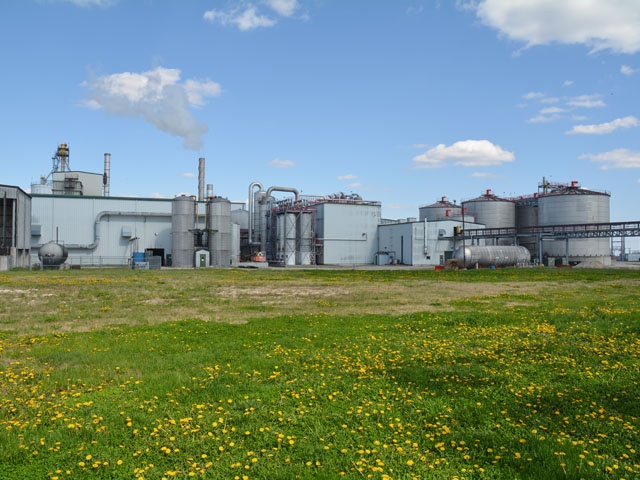EPA Denies All Gap-Year RFS Waivers
Trump Administration Rejects Retroactive Small-Refinery Exemption Requests
OMAHA (DTN) -- The Trump administration made it official on Monday, announcing in an EPA news release that the agency will deny all pending gap-year small-refinery exemptions to the Renewable Fuel Standard for 2011-2018.
"This decision follows President (Donald) Trump's promise to promote domestic biofuel production, support our nation's farmers, and in turn strengthen our energy independence," EPA Administrator Andrew Wheeler said in a statement.
"At the EPA, we are delivering on that promise by following the rule-of-law and ensuring 15 billion gallons are blended into the nation's fuel supply."
The EPA has yet to decide the fate of 31 pending waiver requests for 2019 and 2020, but the announcement ends what has been an agonizing period for the ethanol and agriculture industries. The ethanol industry stood to lose billions of gallons of fuel demand had the waivers been granted.
"Time and time again, EPA has demonstrated through action its commitment to our nation's farmers," EPA said in a news release.
"As promised, EPA is ensuring a net of 15 billion gallons of conventional biofuel are blended into the nation's fuel supply. EPA renewable fuel volume mandates have continued to rise in EPA's annual rulemakings, and, with it, renewable transportation fuel use in the U.S. From 2016 to 2019, domestic ethanol production increased by 2%."
In addition, the agency said in the news release it is taking steps to update E15 labels to "ensure consumers have informed choices" at the pump when it comes to expanded E15 use.
"However, much of the responsibility regarding labels falls to state agencies. EPA encourages they update them as well and stands ready to support them," EPA said. "EPA continues to actively engage with stakeholders to expand the number of approved fuel pathways, adding diversity to the biofuel mix in the United States."
Republican Iowa Gov. Kim Reynolds, who is the chief executive officer of the nation's largest ethanol-producing state, said in a statement the administration's decision comes at a good time for farmers.
"As Iowa farmers grapple with trade disruption, a global pandemic, and the aftermath of a devastating derecho, it's critical that we take action to help our ag economy," she said.
P[L1] D[0x0] M[300x250] OOP[F] ADUNIT[] T[]
"Today's decision by the Trump administration eliminates much of the uncertainty surrounding small-refinery exemptions that undercut demand for biofuels. It's a significant step forward for Iowa's renewable fuel industry and another example of President Trump honoring his commitment to Iowa farmers."
Ernst and Sen. Charles Grassley, R-Iowa, have been calling for the administration to reject the waiver requests.
"Today's announcements will help provide more certainty to our biofuel producers, who have for too long been yanked around by the EPA, and help increase access to E15, which drives up demand for corn and ethanol," Ernst said in a statement. "The fight for Iowa's renewable fuel industry, and our farmers, is not over."
Growth Energy CEO Emily Skor said the waiver requests have weighed on the industry.
"Today's action lifts a cloud of uncertainty that has been hanging over America's farmers and biofuel producers since June," she said.
"We're grateful to farm state champions like Sen. (Joni) Ernst, (R-Iowa) who has led a bipartisan coalition of lawmakers in the House and Senate and governors across the heartland in speaking out against oil-backed efforts to dodge the law, circumvent the courts and upend markets."
American Coalition for Ethanol CEO Brian Jennings said in a statement the EPA made the right decision based on a January court ruling by the U.S. Court of Appeals for the 10th Circuit in Denver.
"Simply put, these retroactive waivers ignored the RFS statute and the 10th Circuit Court decision," he said, "so rejection of the gap-year requests is what the law and court precedent required of EPA."
RFA President and CEO Geoff Cooper said the waiver requests were an "absurd and bizarre attempt" to circumvent the court's decision.
"We wholeheartedly agree with EPA's conclusion that 'these small refineries did not demonstrate then or now that they experienced a disproportionate economic hardship from compliance with the RFS,' as such a demonstration would be impossible for these refineries to make," Cooper said.
According to recent media reports, the Trump administration may be considering providing cash payments to small refiners.
On Saturday, Trump announced in a tweet the EPA would be allowing E15 to be sold in existing E10 pump infrastructure. The agency has not yet made an official announcement.
Based on agency numbers, just seven small refineries qualified for small-refinery exemptions.
On Jan. 24, the U.S. Court of Appeals for the 10th Circuit in Denver ruled EPA didn't have the authority to issue small-refinery exemption extensions to three companies that were not originally granted waivers in 2017 and 2018.
The court also found EPA "abused its discretion" by not explaining its conclusion that a small refinery could suffer disproportionate economic hardship while also maintaining refiners passed on RFS compliance costs to consumers at the pump.
Congress allowed EPA to extend some small-refinery exemptions temporarily.
From 2007 through 2010, 59 small refineries received waivers. The U.S. Department of Energy then examined the 59 waivers and determined that 24 of them could be extended for another two years.
In 2011 and 2012, the number of exemptions was whittled down to eight, then down to seven in 2015. Then, from 2016 to 2018, the agency granted 85 exemptions.
Todd Neeley can be reached at todd.neeley@dtn.com
Follow him on Twitter @toddneeleyDTN
(c) Copyright 2020 DTN, LLC. All rights reserved.




